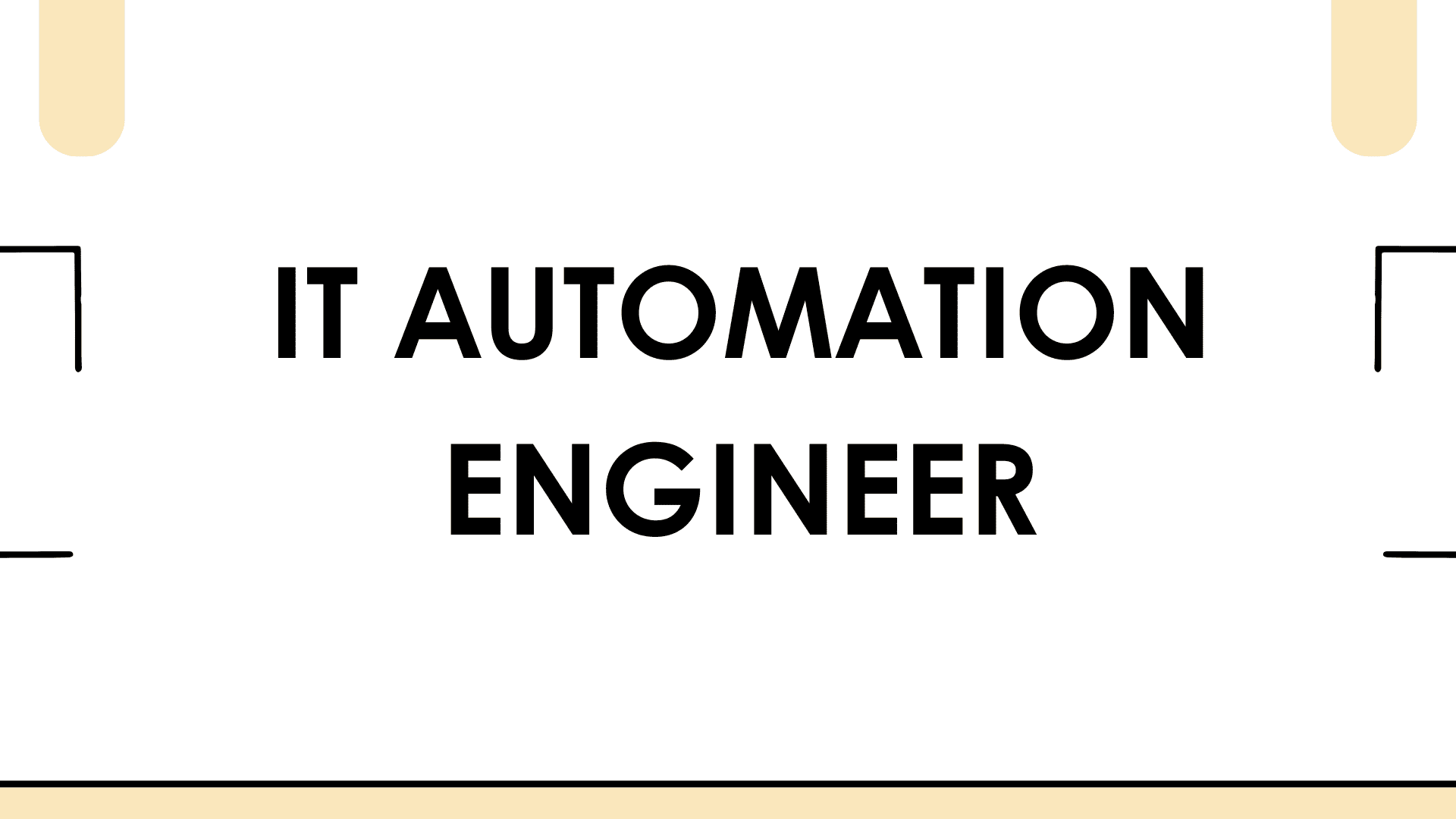TRUSTED BY THE SMARTEST TEAMS IN THE WORLD FOR CERTIFIED CANDIDATES
SPOTO Blogs
Useful learning materials to become certified IT personnel
-
- 324
- Emma
- 2025-06-13 12:21
-
- 508
- Emma
- 2025-06-13 11:54
-
- 419
- SPOTO
- 2025-06-13 11:12
-
- 513
- SPOTO
- 2025-06-13 10:39
-
- 477
- Emma
- 2025-06-12 12:14
-
- 418
- Emma
- 2025-06-12 11:40
-
- 331
- SPOTO
- 2025-06-12 11:37
-
- 528
- SPOTO
- 2025-06-12 11:20
-
- 325
- Emma
- 2025-06-11 12:31
TRUSTED BY THE SMARTEST TEAMS IN THE WORLD FOR CERTIFIED CANDIDATES
SPOTO Blogs
Useful learning materials to become certified IT personnel
-
- 324
- Emma
- 2025-06-13 12:21
Table of Contents1. What is a Scrum Master2. What does a Scrum Master do?3. How much does a Scrum Master make?4. Why pursue a career as a Scrum Master?5. How do I become a Scrum Master?Final Thoughts Have you been contemplating a career switch or looking for fresh opportunities in the ever-evolving tech landscape? Maybe you're interested in a role that combines leadership, agility, and problem-solving, all while working in dynamic, collaborative environments. If so, becoming a Scrum Master might be your perfect next step. In this blog, we will explore everything you need to know about being a Scrum Master. From what this role entails, the responsibilities involved, the necessary skills, career prospects, salary expectations, and how you can get started. 1. What is a Scrum Master A Scrum Master is a vital member of an Agile development team who facilitates project workflows, ensures adherence to Scrum principles, and fosters a productive and collaborative environment. Essentially, they serve as a bridge between the product owner, development team, and stakeholders, enabling seamless communication and efficient progress. Think of a Scrum Master as a coach or facilitator who helps the team stay focused, remove obstacles, and continuously improve their practices. They are not traditional project managers; instead, they empower teams to self-organize and adapt quickly to changing project requirements. According to recent insights from industry sources, a Scrum Master guides teams through the Agile journey, promotes transparency, and upholds Scrum ceremonies such as sprints, stand-ups, and retrospectives. 2. What does a Scrum Master do? Job duties for Scrum Master The core responsibilities of a Scrum Master are centered around facilitating Agile processes: Facilitating Scrum Events: Organizing daily stand-ups, sprint planning, reviews, and retrospectives to keep the team aligned and motivated. Removing Impediments: Identifying obstacles hindering progress and working with stakeholders to resolve them swiftly. Coaching and Mentoring: Educating team members on Agile principles and ensuring best practices are followed. Fostering Collaboration: Encouraging open communication, trust, and teamwork within the group. Monitoring Sprint Progress: Tracking key metrics and ensuring the team meets sprint goals. Supporting Product Owners: Assisting in backlog grooming and sprint planning for clarity and priority setting. Skills of a Scrum Master To excel as a Scrum Master, certain skills are essential: Excellent Communication: Ability to articulate ideas clearly and listen actively. Leadership and Facilitation: Leading without authority, inspiring teams to deliver their best. Problem-Solving: Quickly addressing issues that could stall progress. Knowledge of Agile and Scrum Frameworks: Deep understanding of Scrum ceremonies, roles, and artifacts. Adaptability: Flexibility to handle unpredictable project dynamics. Conflict Resolution: Managing disagreements constructively to maintain team harmony. Technical Acumen: While not necessarily coding, understanding technical concepts is highly advantageous. Related Job Opportunities Product Owner project manager Agile Coach Agile Project Manager 3. How much does a Scrum Master make? Salary ranges for Scrum Masters can vary depending on experience, location, and industry. On average: Entry-Level Scrum Masters: $70,000–$90,000 annually Mid-Level Scrum Masters: $90,000–$110,000 Senior Scrum Masters: $110,000–$140,000+ In regions with a high demand for tech talent—such as North America, Europe, and Australia—compensation tends to be more competitive. 4. Why pursue a career as a Scrum Master? Career Opportunities The demand for Scrum Masters is soaring as companies seek agile professionals to lead digital transformations and project deliveries efficiently. With experience, you can advance to roles such as Agile Coach, Product Owner, or Program Manager. Diverse Challenges and Opportunities for Growth Being a Scrum Master isn't just about meetings; it's a challenging and rewarding role that involves problem-solving, team management, and continuous learning. Every project presents unique obstacles and learning opportunities, making it an ideal career for those who thrive in dynamic environments. Moreover, obtaining industry-recognized certifications, like Certified Scrum Master (CSM), can open doors to higher-level roles and specialized consulting positions. 5. How do I become a Scrum Master? Breaking into the role involves a combination of understanding Agile principles and gaining practical experience. Here's a step-by-step guide: Learn the Basics: Start with foundational knowledge of Scrum, Agile, and project management principles. Get Certified: Enroll in reputable courses—such as those offered by SPOTO—covering Scrum frameworks, ceremonies, and real-world applications. Certifications like CSM or PMP (Project Management Professional) boost your credibility. Build Experience: Participate in Agile projects, even in small roles, to gain hands-on experience. Develop Essential Skills: Focus on communication, facilitation, and problem-solving skills. Network: Join Agile communities, attend conferences, and connect with industry professionals. Apply for Roles: Start applying for entry-level Scrum Master positions or Agile roles that match your skills. Final Thoughts Embarking on a career as a Scrum Master opens doors to an exciting world of leadership, innovation, and constant growth. With organizations increasingly adopting Agile methodologies, skilled Scrum Masters are becoming indispensable. Whether you're looking for a career switch or starting fresh in the tech industry, investing in quality training—such as SPOTO—can set you on the path to success. Don't wait—dive into the agile revolution and transform your professional life today! -
- 508
- Emma
- 2025-06-13 11:54
Table of Contents1. What is a PMO Manager?2. What does a PMO Manager do?3. How much does a PMO Manager make?4. Why pursue a career as a PMO Manager?5. How do I become a PMO Manager?6. Conclusion Have you ever wondered what keeps complex projects on track, aligns teams towards common goals, and ensures organizational success? The answer often lies behind the scenes with a role that is both strategic and vital—the PMO Manager. In today's fast-paced business environment, organizations are increasingly relying on Project Management Offices (PMOs) to streamline operations, improve efficiency, and deliver value. But what exactly does a PMO Manager do? What skills do they need? And could this be the career for you? We'll explore it in this blog; let's dive in. 1. What is a PMO Manager? At its core, a PMO (Project Management Office) Manager oversees the strategic function of project management within an organization. They lead a team of project managers and coordinate efforts across multiple projects to ensure alignment with corporate goals. The role is both leadership and management-oriented, requiring a broad understanding of project methodology, organizational strategy, and stakeholder communication. Essentially, a PMO Manager acts as the bridge between executive leadership and project teams, ensuring that initiatives are delivered on time, within scope, and within budget. A successful PMO Manager isn't just a project overseer; they are strategic thinkers, resource allocators, and change agents committed to driving organizational success through effective project execution. 2. What does a PMO Manager do? Job duties for PMO managers Developing and implementing project management standards: Establishing best practices, procedures, and methodologies for project execution. Resource planning and allocation: Ensuring the right personnel and tools are available for project success. Monitoring project progress: Tracking key milestones, risks, and issues across multiple projects. Stakeholder communication: Serving as the primary liaison between project teams, executives, and clients. Reporting and analysis: Providing insights and performance reports to senior leadership to inform decision-making. Training and mentoring: Building project management competency within the organization through coaching and professional development. Skills of a PMO Manager To excel in this role, certain skills are non-negotiable: Leadership and team management: Ability to inspire and guide project teams. Strategic thinking: Aligning projects with organizational goals. Excellent communication: Articulating complex ideas clearly to diverse stakeholders. Risk management: Anticipating and mitigating potential issues. Problem-solving: Navigating obstacles swiftly and effectively. Technical proficiency: Familiarity with project management tools. Related Job Opportunities PMO analyst PMO coordinator Program Director Portfolio Manager PMO process specialist Chief Operating Officer 3. How much does a PMO Manager make? Salaries for PMO Managers vary based on experience, industry, and geographical location. On average, they earn between $90,000 and $150,000 annually. In highly competitive markets or specialized sectors, compensation can exceed $180,000. Furthermore, those with certifications like PMP (Project Management Professional) tend to command higher salaries. The investment in certification pays off by boosting earning potential and career advancement opportunities. 4. Why pursue a career as a PMO Manager? Career Opportunities The role offers a diverse range of career pathways. As organizations continue to recognize the importance of structured project management, the demand for skilled PMO Managers grows. Whether in consulting, technology, or corporate sectors, opportunities are abundant. Diverse Challenges and Opportunities for Growth One of the most appealing aspects of being a PMO Manager is the variety of challenges faced daily. From managing cross-functional teams to implementing new project methodologies, the role maintains a dynamic environment rich in learning opportunities. Furthermore, as you gain experience, you develop essential leadership skills, strategic insights, and a project portfolio that enhances your value within the industry. It's a career that fosters continuous growth and lifelong learning. 5. How do I become a PMO Manager? Becoming a PMO Manager requires a combination of education, experience, and certification. Here's a clear path: Educational background: A bachelor's degree in business, management, or related fields is typically required. Advanced degrees like an MBA can give you an edge. Gain project management experience: Start by working as a project coordinator or assistant to understand project workflows deeply. Earn relevant certifications: Certifications such as PMP or PRINCE2 are highly valued. For those looking to specialize in the strategic and managerial aspects of project management, specialized training from organizations like SPOTO can be a game-changer. Develop leadership skills: Seek opportunities to lead small projects or teams to build your management acumen. Apply for PMO roles: Once you have the experience and certifications, begin applying for PMO-related positions. Be prepared to demonstrate your ability to coordinate complex projects and lead teams effectively. 6. Conclusion A career as a PMO Manager is more than just overseeing projects; it's about driving organizational success through strategic leadership and effective management. If you're someone who thrives in dynamic environments, enjoys solving complex problems, and aspires to leadership roles, this could be your perfect career path. If you're serious about stepping into this field, investing in quality education is key. Consider enrolling in professional courses—such as those offered by SPOTO—to gain the skills, credibility, and confidence needed to excel. -
- 419
- SPOTO
- 2025-06-13 11:12
Table of Contents1. What is a Senior Network Operations Engineer?2. What does a Senior Network Operations Engineer do?3. How much does a Senior Network Operations Engineer Make?4. Job Outlook of Senior Network Operations Engineer5. Similar Occupations of Senior Network Operations Engineer6. What Are the Qualifications to Become a Senior Network Operations Engineer? This article will introduce you to what a Senior Network Operations Engineer is, the career information and prospects of a Senior Network Operations Engineer and the necessary conditions to become a Senior Network Operations Engineer. 1. What is a Senior Network Operations Engineer? A senior network operations engineer is an IT staff member who handles the computer systems and networks of an organization or enterprise, ensuring that all network operations run smoothly.Senior network operations engineers need to have a deep understanding of programming languages, protocols, hardware components, and IP-based network technologies. 2. What does a Senior Network Operations Engineer do? Senior network operations engineers are often required to actively stay up to date with the latest security measures to protect the networks they manage. Specifically, their work includes the following aspects: First, configure, deploy, and manage kickstart servers to automate Linux server builds. Second, manage MPLS peering connections for voice and video conferencing infrastructure to achieve unparalleled enterprise collaboration solutions. Third, they need to increase the speed and predictability of multicast and order routing data. Finally, deeply analyze and decrypt IP traffic to detect and correct problems related to routing, switching, BGP, and OSPF to achieve smooth operation of organizational systems. 3. How much does a Senior Network Operations Engineer Make? According to data from ZipRecruiter on June 5, 2025, the average annual salary for a senior network operations engineer in the United States is $123,786. That's about $59.51 per hour. That's equivalent to $2,380 per week or $10,315 per month. The highest annual salary can reach $175,000, and the lowest is only $42,500, but most senior network operations engineers currently make between $104,000 and $142,500, with the highest earners in the United States making $162,500. The average salary range for a senior network operations engineer varies widely (up to $38,500), which means they may have many opportunities for advancement and pay increases depending on skill level, location, and years of experience. 4. Job Outlook of Senior Network Operations Engineer Job Outlook of Senior Network Operations Engineer Overall, it is strong and optimistic. According to statistics from the Zippia website, the job growth rate for operations engineers is expected to be 2% from 2018 to 2028, and about 6,400 new operations engineer positions will be added in the next decade. There are currently 155,188 active operations engineer job vacancies in the United States. 5. Similar Occupations of Senior Network Operations Engineer Network Engineer Network Administrator Network Architect System Administrator Infrastructure Engineer Cloud Network Engineer Network Security Engineer 6. What Are the Qualifications to Become a Senior Network Operations Engineer? (1) Obtain a Bachelor's Degree Most entry-level data analyst positions require at least a bachelor's degree in a related field. Employers looking for Senior Network Operations Engineer often require a bachelor's degree in computer science, engineering, telecommunications or information systems. These programs provide the skills and knowledge needed for the career. (2) Develop professional skills The following skills are typically required for a Senior Network Engineer:Experience with Cisco IOS is required and familiarity with Cisco's best practice architecture and design principles is a must.Familiarity with Linux, Microsoft Windows Server, Cisco routers and firewalls, TCP/IP, DNS, Active-Directory, and Microsoft IIS is a plus.Proficiency in converged network design, including multi-layer Quality of Service (QoS) and WAN optimization is required.Working knowledge of wireless technologies using controller-based systems and authentication protocols is required.Proficiency in best practice design and implications of public and private IP addressing is required, and experience with common management and reporting tools such as Solarwinds is a plus. (3) Earn Industry Certifications Obtaining a certification that is highly recognized by the industry can prove your professional ability and ability to perform the position, and can also enhance your competitiveness in the workplace. Therefore, we recommend that you obtain the CCIE Enterprise Wireless certification.CCIE Enterprise Wireless Certification This certification validates your mastery of planning, designing, implementing, operating, and optimizing complex enterprise wireless networks. Earn the Cisco Certified Internetwork Expert (CCIE) Enterprise Wireless certification to help you make decisions about these solutions. -
- 513
- SPOTO
- 2025-06-13 10:39
Table of Contents1. What is a Performance Analyst?2. What does a Performance Analyst do?3. How much does a Performance Analyst Make?4. Job Outlook of Performance Analyst5. Similar Occupations of Performance Analyst6. What Are the Qualifications to Become a Performance Analyst? A performance analyst is a professional who uses his or her data analysis, text processing and presentation skills to help companies optimize their internal organizational framework and improve their work efficiency.This article will introduce you to what a Wireless Performance Analyst is, the career information and prospects of a Wireless Performance Analyst and the necessary conditions to become a Wireless Performance Analyst. 1. What is a Performance Analyst? A performance analyst is a professional who uses his or her data analysis, text processing and presentation skills to help companies optimize their internal organizational framework and improve their work efficiency. 2. What does a Performance Analyst do? Since performance analysts often spend a lot of time collecting and analyzing data, preparing and making presentations, and collaborating with multiple departments within the company, they often need to have strong information identification, critical thinking, and information interpretation skills. In their daily work, performance analysts are responsible for collecting data, researching issues that affect business performance, and submitting reports to make improvement suggestions that can have a positive impact on company performance. They work in a wide range of fields, covering various industries such as financial companies and manufacturing companies. They usually have extensive knowledge in specific areas and understand organizational behaviors that can increase revenue and promote growth. Analysts use technology to collect data to evaluate business performance. They usually develop key performance indicators for evaluation and evaluate changes over a period of time, report their findings to senior management, and may make improvement suggestions for business practices. 3. How much does a Performance Analyst Make? According to Glassdoor, the expected total annual salary for Performance analysts is $81,869, with an average annual salary of $75,499. However, most performance improvement analysts currently make between $69,000 and $95,000, with the highest earners in the United States making up to $136,500. The average salary range for performance improvement analysts varies widely (up to $26,000), which means there are many opportunities for advancement and pay increases depending on skill level, location, and years of experience. 4. Job Outlook of Performance Analyst The Job Outlook of Performance Analyst is generally strong and optimistic. According to the U.S. Bureau of Labor Statistics, employment of management analysts (and related positions) is expected to grow by 11% from 2023 to 2033. This means an average of 95,700 job openings per year over the next decade. 5. Similar Occupations of Performance Analyst Network Performance Analyst RF Optimization Engineer Network Operations Analyst Data Analyst Network Specialist Network Engineer Network Security Engineer System Administrator Information Technology Specialist 6. What Are the Qualifications to Become a Performance Analyst? (1) Obtain a Bachelor's Degree When hiring performance analysts, most employers prefer candidates with a bachelor's degree or higher in a related field, such as business, economics, statistics, mathematics, or computer science. (2) Develop professional skills The position of performance analyst often requires job seekers to have strong analytical skills, so job seekers with strong analytical thinking and keen insight can be more competitive in the job search and promotion process. Therefore, in terms of skills, job seekers are often required to be proficient in using various tools and software to collect, process and visualize data, such as Excel, SQL, Tableau or Power BI. In addition, job seekers also need to have good communication and presentation skills, because this career often requires explaining your findings and recommendations to different audiences (such as managers, customers or stakeholders). In addition, you also need to have a deep understanding of the organization's business goals and the key performance indicators (KPIs) and metrics related to your business area. (3) Earn Industry Certifications Obtaining a certification that is highly recognized by the industry can prove your professional ability and ability to perform the position, and can also enhance your competitiveness in the workplace. Therefore, we recommend that you obtain the CCIE Enterprise Wireless certification.CCIE Enterprise Wireless Certification This certification validates your mastery of planning, designing, implementing, operating, and optimizing complex enterprise wireless networks. Earn the Cisco Certified Internetwork Expert (CCIE) Enterprise Wireless certification to help you make decisions about these solutions. -
- 477
- Emma
- 2025-06-12 12:14
Table of Contents1. What is a Project Coordinator2. What does a Project Coordinator do?3. How much do project coordinators make?4. Why pursue a career as a Project Coordinator?5. How do I become a Project Coordinator? Are You a Natural Organizer? Looking for a Thriving Career? Discover the World of a Project Coordinator! Imagine a role where your keen eye for detail, excellent communication skills, and knack for organization can lead to a rewarding career across various industries. With the increasing demand for skilled coordinators in sectors like technology, healthcare, construction, and finance, this role offers a promising pathway for those eager to develop essential skills and grow professionally. In this blog, we'll explore what a Project Coordinator is, their key responsibilities, the skills required, salary expectations, potential career opportunities, and how you can step into this dynamic profession. 1. What is a Project Coordinator A Project Coordinator acts as the backbone of project execution. Essentially, they're the organizers who ensure that every part of a project runs smoothly—from planning to completion. While Project Managers set the strategic direction and oversee the entire process, Project Coordinators handle the day-to-day administrative and operational tasks to keep everything on track. Think of them as the glue that holds a project together. They coordinate communication between teams, monitor progress, manage resources, and ensure deadlines are met. Without their support, even the most well-planned projects can face delays and miscommunications. 2. What does a Project Coordinator do? Responsibilities of a Project Coordinator Project Coordinators juggle many responsibilities, which can vary depending on the industry and company. However, certain core tasks are common: Monitoring daily project progress to ensure tasks align with deadlines Providing detailed updates to project managers and stakeholders Organizing resources and supplies needed by team members Preparing reports, invoices, contracts, and financial files for easy access Planning meetings and managing project logistics Performing billing and bookkeeping tasks Ordering office supplies In some organizations, they also handle scheduling, risk management, and controlling project scope. They serve as the primary communication bridge, ensuring everyone is informed and aligned. Project Coordinator vs. Project Manager While both roles work closely, their scope differs. The Project Manager develops the project plan, estimates budgets, and makes high-level decisions. The Project Coordinator supports this plan by handling the operational details, freeing the Project Manager to focus on strategic oversight. Many Project Coordinators eventually advance into Project Management roles after gaining experience and developing leadership skills. Skills of a Project Coordinator Success in this role hinges on a robust skill set: Communication skills: Clear, effective written and verbal communication Leadership and teamwork: Ability to motivate and manage team members Organization and time management: Prioritizing tasks and managing multiple deadlines Technical skills: Familiarity with project management tools and software Problem-solving: Quickly resolving issues to keep projects on track Moreover, skills like data analysis, stakeholder management, and risk assessment are increasingly valued, especially with the rise of AI-driven project management tools. Related Job Opportunities Project Manager Program Coordinator Project Assistant Event Coordinator Operations Coordinator Business Analyst 3. How much do project coordinators make? According to recent data from Hong Kong SAR, the average monthly salary for a Project Coordinator ranges from HKD 19,000 to HKD 25,000. In the United States, the average annual salary is approximately $64,349, with potential for bonuses and additional benefits. As experience and skills grow, so does earning potential, making this a financially rewarding career choice. 4. Why pursue a career as a Project Coordinator? Career Opportunities The role opens doors to numerous opportunities. Many coordinators progress to become Project Managers, Program Managers, or even Portfolio Managers, overseeing multiple projects. Industries increasingly recognize the value of skilled coordinators, leading to higher demand and job stability. Diverse Challenges and Opportunities for Growth Every project presents unique challenges, whether managing tight deadlines, budgets, or stakeholder expectations. This constant variety keeps the role exciting and provides ample opportunities to learn and develop professionally. Additionally, with the rise of digital tools and methodologies like Agile, coordinators who adapt and hone their skills can not only excel but also specialize in areas like program management or strategic planning. 5. How do I become a Project Coordinator? Step 1: Earn the Right Education Most organizations prefer candidates with at least a high school diploma, with many favoring a bachelor's degree in Business, Communications, or related fields. For those wanting to stand out, certifications from recognized institutions bolster credibility. Step 2: Develop Core Skills Building a diverse skill set is crucial. Enroll in courses that improve your communication, organization, and technical abilities. Familiarity with project management tools like Microsoft Project, Asana, or Trello is highly beneficial. Step 3: Consider Certification Professional certifications validate your skills and dedication. The Project Management Professional (PMP) from PMI is an excellent option. And for those just starting, the Google Project Management Professional Certificate offers a comprehensive, beginner-friendly pathway. Step 4: Gain Experience Internships, volunteering for projects, or entry-level roles help you accumulate practical experience. Demonstrating your ability to handle coordination tasks effectively positions you for promotion. Step 5: Continue Learning The project management landscape evolves rapidly. Keep up-to-date with new tools, methodologies, and best practices to stay competitive. Ready to become a successful Project Coordinator? Maintain your organizational edge, embrace continuous learning, and consider expanding your skills with SPOTO's top-notch courses. The journey into a rewarding career starts with the right knowledge! -
- 418
- Emma
- 2025-06-12 11:40
Table of Contents1. What is a Change Management Specialist2. What does a Change Management Specialist do?3. Why become a Change Management Specialist?4. How do I become a Change Management Specialist?5. Conclusion Considering a job change? This blog post will recommend a career opportunity to you: Change Management Specialist. In this blog, we'll explore the core questions surrounding this promising career. We'll cover what a Change Management Specialist does, their responsibilities, key skills required, potential job opportunities, salary expectations, how to enter this field, and why it might be the right path for you. 1. What is a Change Management Specialist A Change Management Specialist is a professional who helps organizations implement major changes smoothly and effectively. Whether it's a new technology system, a restructuring, or a cultural transformation, this individual ensures that the human side of change is managed thoughtfully. Their main goal? Minimize resistance, foster engagement, and ensure that the change delivers its intended benefits. Think of a Change Management Specialist as the bridge between strategy and people—translating organizational visions into practical, manageable steps that employees and stakeholders can embrace. 2. What does a Change Management Specialist do? Responsibilities of a Change Management Specialist The responsibilities of a Change Management Specialist stretch across several domains: Assessing Change Impact: Analyzing how proposed changes will affect various parts of the organization. Developing Change Strategies: Creating comprehensive plans to help employees adopt new systems, processes, or behaviors. Communication Planning: Designing and executing communication initiatives that keep all stakeholders informed and engaged. Training and Support: Facilitating training sessions, workshops, and coaching to empower staff. Overcoming Resistance: Addressing concerns, managing conflicts, and fostering a positive attitude toward change. Monitoring and Reporting: Tracking progress and making adjustments based on feedback and data. It's a role that combines strategic thinking with interpersonal skills, requiring a nuanced understanding of organizational dynamics. Skills of a Change Management Specialist Becoming effective in this role demands a mix of technical and soft skills: Strong Communication Skills: To relay complex ideas clearly and motivate teams. Empathy and Emotional Intelligence: Understanding and addressing stakeholders' concerns. Project Management Abilities: Coordinating various activities and deadlines. Analytical Skills: Assessing impact and measuring success. Leadership and Influence: Persuading and guiding others through change. Related Job Opportunities Change Manager Organizational Development Consultant Business Transformation Lead HR Change Agent Project Manager with change responsibilities 3. Why become a Change Management Specialist? Salary Level The demand for skilled change agents is rising, and so are the rewards. Entry-level Change Management Specialists typically earn around $70,000–$90,000 annually, with experienced professionals earning well over $120,000 depending on industry and location. The combination of technical skills and soft skills makes this role highly valued. Career Opportunities Organizations of all sizes and sectors need change management expertise. Some common career trajectories include advancing to senior change management roles, project leadership positions, or even executive roles like Director of Transformation. The ability to drive change is often an asset that sets candidates apart in competitive job markets. Diverse Challenges and Opportunities for Growth The dynamic nature of change initiatives means no two projects are alike. Specialists may work on digital transformations, cultural shifts, mergers, or process improvements. Each challenge offers a chance to learn new skills, develop leadership abilities, and make a tangible impact on organizational success. 4. How do I become a Change Management Specialist? Gain Relevant Education To start your journey, it's essential to build a solid foundation in organizational change principles. Many professionals pursue degrees or courses in business administration, organizational development, or HR management. Get Certified Certification can significantly accelerate your career. While you might consider obtaining the PMP (Project Management Professional) first—since it provides a strong project management foundation—note that PMP does not focus exclusively on change management. It is valuable for understanding project scope, schedule, and resource management, which are crucial for change initiatives. After earning your PMP, the logical next step is to pursue the ACMP Certified Change Management Professional (CCMP). Build Hands-On Experience Theory and certification alone aren't enough—real-world experience is vital. Start by volunteering for change projects within your organization or seeking roles in HR, project management, or business improvement where change initiatives are employed. Working directly on projects helps you understand the challenges involved and develop practical skills like stakeholder communication, training, and resistance management. 5. Conclusion The role of a Change Management Specialist is increasingly vital in our unpredictable and fast-paced world. Organizations need experts who can facilitate smooth transitions, foster stakeholder engagement, and ensure that change initiatives succeed. If you're someone who enjoys strategic thinking, working with people, and solving complex challenges, this could be the perfect career path. Getting trained with industry-leading courses—such as those provided by SPOTO—can give you the edge you need to stand out. Whether you're embarking on your career or looking to deepen your expertise, becoming a Change Management Specialist offers both rewarding challenges and significant growth opportunities. Are you ready to take the next step toward leading successful organizational change? Explore SPOTO's comprehensive courses today and start transforming your career! -
- 331
- SPOTO
- 2025-06-12 11:37
Table of Contents1. What is an IoT Network Engineer?2. What does an IoT Network Engineer do?3. How much does an IoT Network Engineer Make?4. Job Outlook of IoT Network Engineer5. Similar Occupations of IoT Network Engineer6. What Are the Qualifications to Become an IoT Network Engineer? An IoT engineer is a technical person who focuses on the design, development, and deployment of Internet of Things (IoT) solutions within an organization.This article will introduce you to what an IoT Network Engineer is, the career information and prospects of an IoT Network Engineer and the necessary conditions to become an IoT Network Engineer. 1. What is an IoT Network Engineer? An IoT engineer is a technical person who focuses on the design, development, and deployment of Internet of Things (IoT) solutions within an organization. 2. What does an IoT Network Engineer do? IoT engineers are at the forefront of merging the physical world with the digital world, designing and implementing systems that enable devices to communicate and interact seamlessly. They use expertise in multiple disciplines such as electronics, software development, and network systems to create responsive and efficient smart devices and infrastructure. Specifically, they need to be responsible for the following aspects: First, they need to work with cross-functional teams (including product managers, hardware engineers, and data scientists) to define system requirements and provide comprehensive IoT solutions to create and maintain a strong IoT architecture to ensure that data flows between devices and platforms are secure and reliable. Secondly, to ensure the normal operation of the IoT, they also need to develop and deploy cloud-based applications to manage and analyze data collected from IoT devices. On this basis, it is also necessary to ensure compliance with industry standards and regulations related to data privacy, security, and device interoperability. Finally, IoT engineers also need to keep up with the advancement of IoT-related technologies and trends, promote innovation within the organization, monitor the performance of IoT systems, and make necessary adjustments or upgrades to hardware and software components. 3. How much does an IoT Network Engineer Make? According to the website of devitjobs, the average annual salary of IoT developers in the United States is $162,000, while the median annual salary is $176,500, which means that 50% of developers have a salary of more than $176,500, while 50% of developers have a salary below this level. The top 25% of IoT developers earn more than $190,000 per year, while the top 10% of developers earn more than $206,400 per year, which is a pretty good salary worth striving for. At the same time, among the lowest-paid IoT engineers, 25% earn less than $133,500 per year, and 10% earn less than $110,000 per year. 4. Job Outlook of IoT Network Engineer As IoT technology develops rapidly in industrial and customer-facing fields such as manufacturing, retail, and healthcare, the job market in the IoT industry is also growing. According to a report by Mordor Intelligence, the IoT market size will grow to $761.4 billion by 2020 and is expected to reach $1.39 trillion by 2026. And it is expected that in the future, the number of jobs for IoT engineers will increase by 17,871 from 2024 to 2030. 5. Similar Occupations of IoT Network Engineer Network Engineer System Engineer IoT Engineer Network Architect IoT Security Engineer IoT Software Developer Embedded Engineer 6. What Are the Qualifications to Become an IoT Network Engineer? (1) Obtain a Bachelor's Degree Most entry-level data analyst positions require at least a bachelor's degree in a related field. Employers looking for IoT Network Engineer often require a bachelor's degree in computer science, engineering, telecommunications or information systems. These programs provide the skills and knowledge needed for the career. (2) Develop professional skills The role of an IoT engineer is complex and requires a variety of skills, including knowledge of sensors, microcontrollers, network protocols, and cybersecurity. The difficulty of this job varies greatly depending on the scope and scale of the IoT project. IoT engineers need to be proficient not only in technical engineering, but also in envisioning how IoT solutions can solve real-world problems. They must be lifelong learners who constantly update their skills to keep up with technological advances. (3) Earn Industry Certifications Obtaining a certification that is highly recognized by the industry can prove your professional ability and ability to perform the position, and can also enhance your competitiveness in the workplace. Therefore, we recommend that you obtain the Cisco Certified DevNet Associate certification.The Cisco Certified DevNet Associate course is designed to help software developers, network professionals, and IT professionals obtain the latest Cisco certification, the Cisco Certified DevNet Associate. It will help you understand the core platforms used by Cisco, Cisco programmability strategies, applications, and how to use APIs. -
- 528
- SPOTO
- 2025-06-12 11:20
Table of Contents1. What is an IT Automation Engineer?2. What does an IT Automation Engineer do?3. How much does an IT Automation Engineer Make?4. Job Outlook of IT Automation Engineer5. Similar Occupations of IT Automation Engineer6. What Are the Qualifications to Become an IT Automation Engineer? IT Automation Engineer refers to a professional IT personnel who is responsible for providing automated solutions for the IT process framework to improve efficiency and reduce system risks.This article will introduce you to what an IT Automation Engineer is, the career information and prospects of an IT Automation Engineer and the necessary conditions to become an IT Automation Engineer. 1. What is an IT Automation Engineer? IT Automation Engineer refers to a professional IT personnel who is responsible for providing automated solutions for the IT process framework to improve efficiency and reduce system risks. 2. What does an IT Automation Engineer do? The work of IT Automation Engineers mainly revolves around how to make the organization's system operate effectively by developing automated process solutions. In this process, they need to cooperate with people from various departments. The specific work content is as follows: First, they need to communicate with relevant personnel to determine the needs and conduct research and design of automation technology. Secondly, they need to develop tests and simulations to ensure that the system operates as expected. Finally, to ensure the security of the organization's system, they establish monitoring and quality assurance processes to promptly investigate defects or errors in the technology. 3. How much does an IT Automation Engineer Make? According to ZipRecruiter's June 4, 2025 data, the average annual salary for IT Automation Engineers in the United States is $107,126. That's about $51.50 per hour. This is equivalent to $2,060 per week or $8,927 per month. The highest annual salary can reach $163,000 and the lowest is only $37,000, but most IT Automation Engineers currently have an annual salary between $86,500 and $123,500, and the highest earners in the United States can earn up to $142,500. The average salary range for IT Automation Engineers varies greatly (up to $37,000), which means there may be many opportunities for advancement and pay increases depending on skill level, location, and years of experience. 4. Job Outlook of IT Automation Engineer According to statistics from the Zippia website, the employment growth rate for automation and control engineers is expected to be 3% from 2018 to 2028, and approximately 9,800 new automation and control engineer positions are expected to appear in the next decade. There are currently 54,312 active automation and control engineer job vacancies in the United States. 5. Similar Occupations of IT Automation Engineer Software Automation Engineer Test Automation Engineer DevOps Engineer Control Engineer Software Quality Assurance Engineer Quality Assurance Engineer Systems Engineer Manufacturing Automation Engineer Automation Consultant 6. What Are the Qualifications to Become an IT Automation Engineer? (1) Obtain a Bachelor's Degree When recruiting IT Automation Engineer, employers usually require job seekers to have a bachelor's degree in cybersecurity, computer science, computer science or a related field. At the same time, a higher level of education can provide job seekers with a certain degree of competitiveness in the workplace. (2) Gain practical experience Experience is critical in a technical career. As technology changes rapidly, employers want to know if you have the skills and experience to meet their requirements without having to invest too much money in training. It is recommended to start with an entry-level position in the field of network engineering. Internships and entry-level IT jobs are great ways to gain experience, learn to troubleshoot, and expand your knowledge of network technologies. (3) Earn Industry Certifications Obtaining a certification that is highly recognized by the industry can prove your professional ability and ability to perform the position, and can also enhance your competitiveness in the workplace. Therefore, we recommend that you obtain the Cisco Certified DevNet Associate certification.The Cisco Certified DevNet Associate course is designed to help software developers, network professionals, and IT professionals obtain the latest Cisco certification, the Cisco Certified DevNet Associate. It will help you understand the core platforms used by Cisco, Cisco programmability strategies, applications, and how to use APIs. -
- 325
- Emma
- 2025-06-11 12:31
Table of ContentsQuick summary of this article1. What is an Innovation Director2. What does an Innovation Director do?3. Why become an Innovation Director?4. How do I become an Innovation Director?5. Conclusion Quick summary of this article In today's quickly evolving business landscape, innovation is more than a buzzword—it's a necessity. At the heart of this drive is the Innovation Director, a role steering companies towards groundbreaking success. This article provides an in-depth look at the role of an Innovation Director, exploring what the position entails, key responsibilities, essential skills, and career paths. It emphasizes why becoming an Innovation Director is an attractive career, including salary prospects, opportunities for growth, and diverse challenges. The article also offers guidance on how to pursue this career and concludes by highlighting the importance of continuous learning. 1. What is an Innovation Director An Innovation Director is a senior executive responsible for identifying, developing, and implementing new ideas, products, or services that propel a business forward. Think of them as the visionary architects who turn creative concepts into tangible results, ensuring a company stays competitive in the face of technological advancements and market shifts. Typically, they oversee innovation strategies, coordinate cross-departmental efforts, and foster a culture of continuous improvement. As companies increasingly prioritize agility and disruptive solutions, the role of an Innovation Director has become crucial for long-term success. 2. What does an Innovation Director do? Responsibilities of an Innovation Director The core responsibilities of an Innovation Director include Developing Innovation Strategies: Crafting comprehensive plans aligned with company goals to explore new markets, products, or processes. Identifying Opportunities: Using market research, emerging technologies, and customer insights to find potential areas for innovation. Leading Cross-Functional Teams: Collaborating with R&D, marketing, finance, and other departments to translate ideas into viable products or services. Managing Innovation Projects: Overseeing the lifecycle of innovation initiatives, from conception to testing and launch. Fostering a Creative Culture: Inspiring employees at all levels to contribute ideas and embrace change. Monitoring Trends: Staying abreast of industry trends, technological breakthroughs, and competitors' moves to ensure the company remains ahead. As one progresses in their career, these duties evolve—from hands-on project management to strategic leadership and organizational transformation. Skills of an Innovation Director Success in this role demands a blend of skills, including Strategic Thinking: The ability to envision long-term possibilities and craft effective pathways. Creativity and Curiosity: A keen eye for innovative possibilities and a willingness to challenge the status quo. Leadership and Influence: Inspiring teams and aligning stakeholders around a shared vision. Technical Knowledge: Familiarity with relevant technologies and industry trends. Problem-Solving: Quick, effective decision-making amidst uncertainty. Communication Skills: Clearly articulating ideas and building consensus across departments. Jobs similar to an Innovation Director R&D Director Innovation Consultant Product Innovation Manager Product Development Manager Business Transformation Leader. Business Transformation Manager 3. Why become an Innovation Director? Choosing a career as an Innovation Director offers many benefits: Salary Level High earning potential is a significant draw. As per recent data, Innovation Directors in Hong Kong can earn around HK$94,047 annually, with ample room for bonuses and additional perks as experience grows. Career Opportunities The demand for innovation leadership is skyrocketing across industries—tech, finance, healthcare, and manufacturing—offering diverse opportunities worldwide. Advancement often involves moving into executive roles such as Chief Innovation Officer or Chief Strategy Officer. Diverse Challenges and Opportunities for Growth No two days are the same. The role involves tackling complex problems, managing cross-cultural teams, and navigating technological disruptions. This diversity fosters continual learning and professional development, keeping careers exciting and dynamic. 4. How do I become an Innovation Director? The pathway to becoming an Innovation Director typically involves Educational Background: A bachelor's degree in business, technology, engineering, or related fields; a master's degree (MBA or MS) can be advantageous. Gaining Relevant Experience: Progressing through roles like product manager, R&D specialist, or business analyst provides a solid foundation. Building Skills: Developing strategic thinking, leadership, and technical expertise through training. Networking and Certification: Joining professional groups and earning certifications (e.g., Project Management Professional) enhances credibility. Demonstrating Track Record: Proven success in leading innovation initiatives boosts your prospects. 5. Conclusion Becoming an Innovation Director is more than a career choice—it's a chance to influence the future of your industry. With a blend of creativity, strategy, and leadership, this role presents high reward and constant growth opportunities. As markets continue to evolve at breakneck speed, organizations will need innovative leaders ready to steer them through transformation. If you're eager to accelerate your journey toward this exciting role, investing in relevant education is key. SPOTO provides comprehensive courses designed to sharpen your skills and prepare you for this dynamic career. Embark on your innovation journey today and shape the future you envision!














